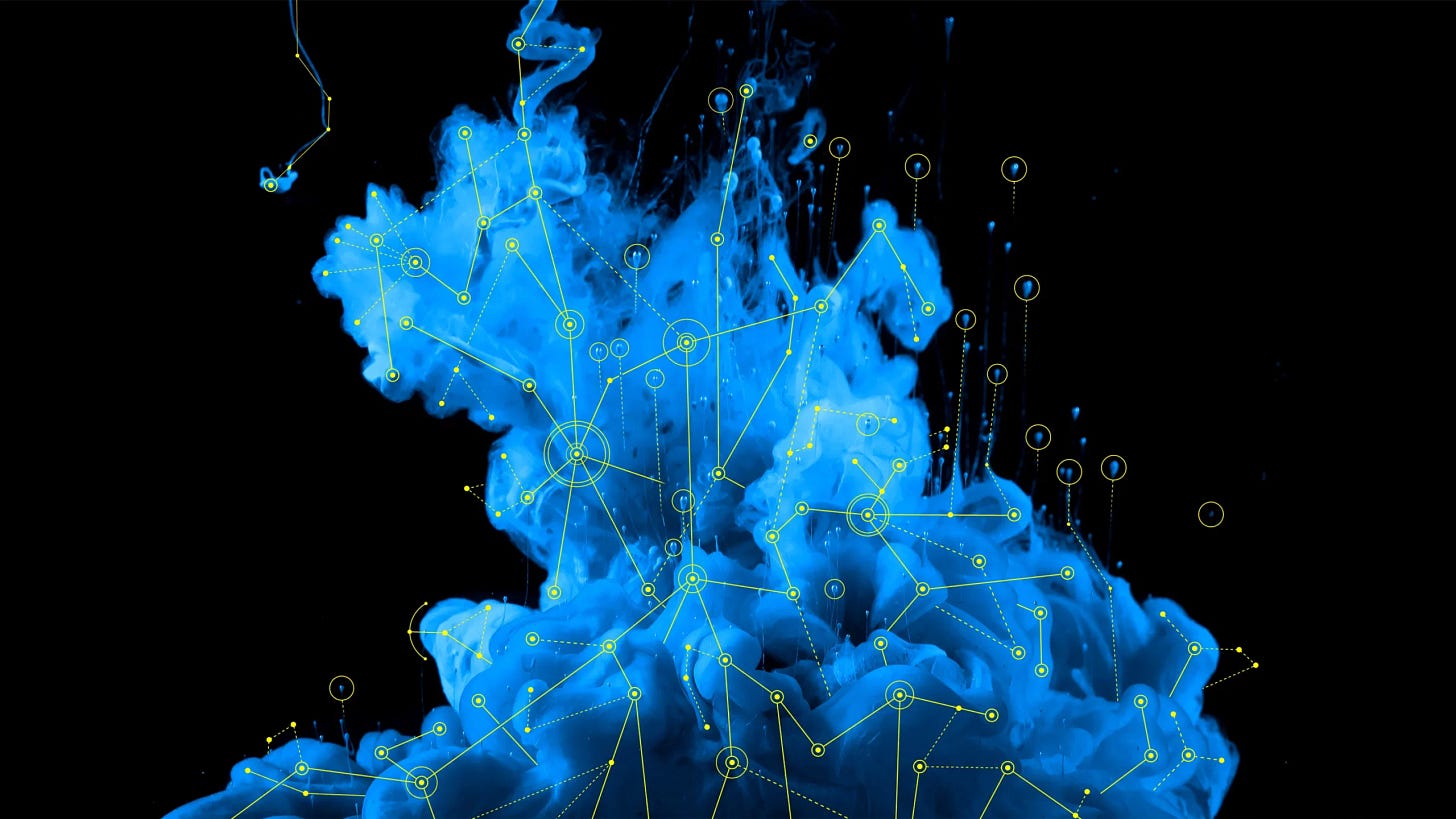Why Information Must Be Fundamental, Not Emergent
A deep dive into the Information Conservation Principle and why treating information as a basic constituent of reality, not an afterthought, completely changes our understanding of knowledge limits.
"More troubling for the emergent view are the fundamental conservation laws discovered in quantum information theory. The no-cloning theorem proves that quantum information cannot be perfectly copied. The no-deleting theorem shows it cannot be perfectly erased. The no-hiding theorem, experimentally confirmed in 2011, demonstrates that if information disappears from one quantum system, it must appear elsewhere in the universe—it cannot simply vanish into nothingness."
°●°○°○●°This is question seven of a 90-question series where I attempt to answer critical questions that challenge my Discovery Plateau Hypothesis. The goals are to fill in any gaps I might be missing, provide adequate and satisfactory answers, and eliminate parts of the work that prove incorrect.
Why should information be treated as fundamental rather than emergent?
This isn't just abstract theorizing. The distinction between treating information as fundamental versus emergent completely changes how we understand the limits of knowledge and discovery. If information merely emerges from complex arrangements of matter, then those limits might be overcome through better technology or more sophisticated methods. But if information is fundamental—if it's conserved like energy and has the same ontological status as mass—then the discovery plateaus we're observing across scientific domains aren't temporary obstacles. They're signatures of approaching a genuine boundary in the fabric of reality itself.
The Case Against Emergence
Most scientists today treat information as emergent, something that arises when matter reaches sufficient complexity. A book contains information because ink marks on paper form patterns our brains can interpret. A DNA molecule carries information because its sequence determines protein structures. In this view, information is always "information about something else," always dependent on an observer or interpreter to give it meaning.
But this emergent view faces serious problems when confronted with modern physics. Quantum mechanics, our most fundamental theory of reality, is saturated with informational concepts from its very core. The uncertainty principle governs our possible knowledge of quantum states. Quantum entanglement describes how systems exchange information across space. The wave function itself is what Schrödinger called a "catalogue of information".
More troubling for the emergent view are the fundamental conservation laws discovered in quantum information theory. The no-cloning theorem proves that quantum information cannot be perfectly copied. The no-deleting theorem shows it cannot be perfectly erased. The no-hiding theorem, experimentally confirmed in 2011, demonstrates that if information disappears from one quantum system, it must appear elsewhere in the universe—it cannot simply vanish into nothingness.
These aren't technical details about quantum computing. They're telling us something profound about the nature of information itself: it behaves exactly like other conserved quantities in physics. Energy cannot be created or destroyed, only transformed. Mass cannot be created or destroyed, only converted to energy. And information cannot be created or destroyed, only redistributed or encoded in different physical substrates.
The Physics of Fundamental Information
The experimental evidence for information's fundamental status has been mounting for decades. Landauer's principle, first proposed in 1961 and experimentally verified in 2012, proves that erasing even one bit of information requires a minimum energy cost of kT ln 2. This isn't just about computers—it's about any physical process that destroys information. The principle establishes a direct conversion rate between information and energy, treating them as interchangeable physical quantities.
But perhaps the most compelling evidence comes from quantum mechanics itself. The Schrödinger equation, which governs all quantum evolution, is perfectly time-reversible and deterministic. It conserves information completely; given the exact quantum state now, you can calculate both the past and future evolution with perfect precision. This time-reversibility is what physicists call "unitary evolution," and it's the reason quantum computers might eventually break classical encryption: they preserve quantum information through their calculations in ways classical computers cannot.
This isn't some obscure technical feature. It means that at the most fundamental level, the universe operates like a vast information-processing system where no bit is ever truly lost. When a system appears to lose information, like when quantum coherence collapses into classical measurement results, the missing information hasn't disappeared. It's been transferred to the environment, encoded in correlations too complex for us to track.
The implications are staggering. If information is conserved at the quantum level, then the universe contains a fixed total amount of distinguishable states, patterns, and relationships. This finite informational structure, vast but not infinite, is what ultimately constrains what can be discovered.
The Primordial Information Foundation
The fundamental status of information becomes even clearer when we examine the early universe. The slight asymmetries that emerged in the first moments after the Big Bang—the small excess of matter over antimatter, the quantum fluctuations in an otherwise uniform cosmos—weren't arbitrary accidents. They were the primordial informational patterns that made all subsequent complexity possible.
Without these initial asymmetries, no atoms could have formed, no stars could have ignited, no planets could have condensed. The universe would have remained a perfectly symmetric, perfectly boring sea of uniform particles. The fact that we observe structure, complexity, and information-processing systems like ourselves suggests that information existed from the very beginning, embedded in the universe's initial conditions.
This supports the ICP's claim that information is conserved rather than created. All possible knowledge exists as information encoded in the universe's structure. Human discovery isn't generating new information; it's decoding and interpreting fragments of this vast informational substrate. Mathematics wasn't invented; it was discovered, because its patterns were always embedded in reality's information structure. The laws of physics weren't created by human minds; they were uncovered because they describe the informational constraints that govern how matter and energy can behave.
Why the Hierarchical Relationship Matters
Understanding information as fundamental rather than emergent reveals a crucial hierarchical relationship: information constrains matter, matter constrains energy. This isn't just philosophical speculation; it has direct implications for how we understand discovery limits.
In the emergent view, better computers, smarter algorithms, or more sophisticated instruments should eventually overcome any knowledge barrier. Information is just patterns in matter, so better pattern-recognition tools should unlock unlimited discovery potential. But if information is fundamental, then we're working within fixed constraints. The universe contains a finite informational structure, and no amount of technological advancement can create information that doesn't exist.
This explains several puzzling features of contemporary science. Why have research costs per fundamental discovery increased exponentially over recent decades? Why are we seeing longer intervals between paradigm-shifting breakthroughs? Why has scientific progress shifted toward computational and AI-assisted methods rather than direct experimental discovery? The emergent view treats these as temporary growing pains. The fundamental view recognizes them as symptoms of approaching genuine informational limits.
Consider the current barriers in fundamental physics: the hierarchy problem, the cosmological constant problem, the persistent mystery of dark matter and dark energy. These aren't just difficult technical challenges; they may represent regions where accessible information is genuinely sparse. We're not failing to discover solutions; we may be approaching domains where the informational structure of reality simply doesn't contain the answers we're seeking in forms we can access with our bounded cognitive and technological resources.
The Mathematical Foundation
The Information Conservation Principle can be formalized mathematically in ways that generate testable predictions. In classical systems, Liouville's theorem already guarantees that the total information content of a closed system remains constant over time—fine-grained entropy is conserved even as coarse-grained entropy increases. In quantum systems, unitary evolution ensures that the total quantum information, measured by von Neumann entropy, remains constant as systems evolve.
What the ICP adds is the recognition that this conservation operates hierarchically. Information constrains the possible configurations of matter, just as matter constrains the possible transformations of energy. This creates a nested structure of conservation laws where violations at one level must be compensated at another.
The mathematical formalism predicts specific signatures of discovery plateaus. In any bounded domain, the rate of novel information extraction should follow a modified logistic curve with an additional "exposure drag" term that accounts for how accumulated knowledge makes further discovery progressively more difficult. This isn't because the remaining unknowns are harder to reach; it's because the informational structure itself becomes sparser in regions we haven't already explored.
Beyond Wheeler: Information as Cosmic Architecture
Wheeler's "it from bit" was prescient, but the full implications go beyond what he envisioned. Information isn't just the foundation of quantum mechanics; it's the cosmic architecture that determines what kinds of structures, patterns, and discoveries are possible in the first place.
This has profound implications for understanding consciousness, intelligence, and the apparent fine-tuning of physical constants for complexity. If information is fundamental, then information-processing systems like brains aren't miraculous emergent phenomena—they're inevitable consequences of information's tendency to organize itself into increasingly sophisticated patterns. The universe isn't accidentally suitable for complexity; it's informationally structured to generate and process information.
This perspective also resolves several longstanding puzzles. Why is mathematics so "unreasonably effective" in describing physical reality? Mathematical relationships are embedded in the informational structure that constrains physical processes. Why do independent civilizations seem likely to discover similar mathematical truths? Because they're decoding the same underlying informational substrate. Why do predictive models work at all? Because the information we use to make predictions was always there, waiting to be uncovered.
The Discovery Plateau Implications
Treating information as fundamental rather than emergent completely changes how we interpret discovery plateaus across scientific domains. These aren't signs of failure or temporary obstacles—they're natural consequences of finite informational structure being systematically explored by finite cognitive systems.
This doesn't mean the end of discovery, but it does mean a transformation in its nature. Instead of seeking entirely new fundamental truths, science may increasingly focus on novel applications of existing informational patterns. Instead of pursuing breakthrough innovations, technology may emphasize optimization within known parameter spaces. Instead of expanding the boundaries of knowledge, human intellectual effort may turn toward more sophisticated utilization of information we've already accessed.
The shift toward AI-assisted discovery that we're already observing isn't just a tool upgrade—it's an inevitable response to approaching informational limits. As accessible novelty becomes scarcer, we need computational methods to extract meaning from increasingly subtle patterns in data we've already collected. We're not using AI because it's convenient; we're using it because the easy discoveries have been exhausted, and only computational force can squeeze remaining insights from the informational structure we're embedded within.
Understanding information as fundamental also explains why certain problems may be genuinely intractable rather than just difficult. If consciousness, for instance, depends on informational patterns that are intrinsically subjective—patterns that lose their essential character when encoded in objective, third-person descriptions—then the "hard problem of consciousness" isn't a temporary scientific puzzle. It's an informational constraint built into reality's structure.
The Practical Consequences
This fundamental view of information has immediate practical implications for research strategy, funding priorities, and technological development. If discovery plateaus reflect genuine informational limits rather than temporary barriers, then throwing more resources at traditional approaches may yield diminishing returns.
Instead, the most productive strategies may involve: developing better methods for extracting meaning from data we've already collected; creating more sophisticated tools for synthesizing knowledge across domains; focusing on optimization and application rather than pure discovery; and preparing for a future where technological advancement depends more on clever utilization of known principles than on breakthrough discoveries of new ones.
The Information Conservation Principle also suggests that the most valuable intellectual work may increasingly involve recognizing patterns and relationships that were always present but previously unnoticed. The great discoveries of the future may come not from uncovering entirely new facts about reality, but from finding novel ways to combine and apply information we already possess.
This perspective offers both sobering realism about limits and exciting possibilities for depth. If the universe contains a finite but vast informational structure, then complete knowledge may be impossible, but profound understanding within bounded domains remains achievable. We may be approaching the end of an era of unlimited expanding frontiers, but entering an age of intensive cultivation within well-defined territories.
The Discovery Plateau Hypothesis, grounded in the fundamental nature of information, suggests that humanity may be approaching a crucial transition point. Not the end of intellectual progress, but its transformation from extensive exploration of new territories to intensive development of regions we've already mapped. Understanding information as fundamental rather than emergent is the key to navigating this transition successfully and recognizing the opportunities it creates for different kinds of knowledge and different forms of human flourishing.
°•○●•°•○••••
my rebuttal:
Sounds as if an appeal to immortality. What information we acquire if it is in fact knowing what is all knowable or universal in the sense we confront ourselves with illusions of that information. We apply things only as we can see them. Philosophy is itself a quantum (critical) analysis about what we observe independently of that thing in itself. In quantum theory isn't it proven that wave particles behave simultaneously responding if observed and differently if not observed. This to me is a qualification of our being.
For example: AI computationally intercepts and interprets (only rearranges information it acquires) as a mimickery to what we already know. It does not quantify my being. At all. Therefore, the particle wave theory holds true.
Marco Almeida ©️ 2025







No comments:
Post a Comment